By Blaine Taylor
Like all Palestinians and most Arabs, Haj Amin al-Hussaini not only looked forward to an Axis Pact victory in World War II but also saw it as a means of defeating what he believed was a joint British-Jewish conspiracy to foist an Israelite homeland on the Middle East that would be to the detriment of his own people.
An Arab officer in the Turkish Ottoman Army in World War I, the young, familial, dynastic figure rose to political fame and power at an early age by helping to restore two Arab holy places in Jerusalem, hit his stride during the late 1930s, and reached the zenith of his fame by 1946, its nadir after 1948, and its twilight between 1950 and 1974.
The first true nationalist Palestinian politician, Haj Amin succeeded his late brother as the British-appointed Grand Mufti of Jerusalem (a title his family had held since 1789) in 1921 at age 26 as a law-and-order candidate, then used his two primarily religious titles to create, cement, and expand a political base from which he became the godfather of the later feared Palestinian Liberation Organization (PLO), which Yasser Arafat inherited from him upon Haj Amin’s death in 1974. He served as Grand Mufti for life, 1921-1974.
A Vocal Opponent of Jewish Immigration
Originally a supporter of the British Empire Mandate in the Holy Land during the first nine years of his tenure of office, the Grand Mufti’s moment of truth and parting of the ways with the United Kingdom came in 1936 when the British allowed into Arab Palestine a vast expansion of global Jewish immigration, more than 400,000 people.
From this, the Arabs feared that within a very few years they would be engulfed by a growing Jewish population that would ultimately dwarf their own numbers. Simultaneously, the Jews were also buying up vast tracts of Arab land in Palestine as well.
For his part, Haj Amin believed sincerely that the British meant to install a Jewish national state with or without Arab Palestinian consent, and one moreover that would dominate the entire region. Thus, the Grand Mufti came to personify the first and most vocal opponent of the future State of Israel, as well as the first to openly challenge the British Mandate politically.
The Mufti’s Axis Alignment
The subsequent Second Arab revolt of 1936-1939 (the first being that of Prince Faisal and Lawrence of Arabia in 1916-1918) was crushed by the British Army in the spring of 1939, leading the Mufti to flee for his life, having been both an ally and then a foe of the Mandatory British.
As Haj Amin escaped first to Lebanon, from which to direct an ongoing guerrilla war in his homeland, the British Mandate High Commissioner junked all plans for an effective partition of Palestine between Jew and Arab, a partition that would in fact be accomplished after the war, in 1948.
In the fall of 1939, Haj Amin left Lebanon for Iraq where, for the next year, he plotted with native right-wing Iraqi Prime Minister Rashid Ali to forestall the British there, then align that state and, indeed, all of the Arab world, with the Axis Pact in Europe against what was perceived as their common enemy: the British-French-Jewish alliance that would later include both Russia and the United States.
It was their joint conviction that only through an Axis victory in the Middle East would the British Army and the Mandate be driven out and Palestine granted its independence by none other than German Führer and Reich Chancellor Adolf Hitler.
Both men billed themselves wrongly as the sole leader of the Arab world, while their domestic opponents disputed these claims, fought the Mandate and its Zionist allies, and feared that Hitler would be a far greater tyrant than King George VI in far-off London.
In this belief, they were not entirely wrong, either, as the Führer mused confidently aloud of “the period after the conquest of the Mideast” as being appropriate for the Nazis to anoint an Arab leader there.
Meanwhile, the revolt was stamped out in Iraq in May 1941, the Red Army marched into Iran, Palestine was still occupied by the Mandate, and a civil war continued to rage there. In Libya and then Egypt, the German Afrika Korps piled up victories against the hated British as thrilled Arab mothers named their newborn sons Adolf and Erwin, the latter for German Field Marshal Rommel, the Desert Fox. The Grand Mufti, meanwhile, approved both the civil war and murder in Palestine from abroad.
Great Britain: “The Greatest Foe of Islam”
On May 9, 1941, the day before the peace flight to Scotland by Nazi Deputy Führer Rudolf Hess, Haj Amin declared a Muslim jihad (holy war) against Great Britain as “the greatest foe of Islam” and incited anti-Jewish riots in Baghdad. Rashid Ali’s revolt there failed, mainly because German and fascist Italian military aid did not arrive in time, but Haj Amin blamed instead a Jewish fifth column.
The Grand Mufti fled for the next 20 months to Iran and on June 13, 1941, was invited by the German Foreign Office to formally visit the Third Reich. Haj Amin hid in the Japanese embassy in Tehran until sneaking into Turkey in disguise in October, using a false passport.
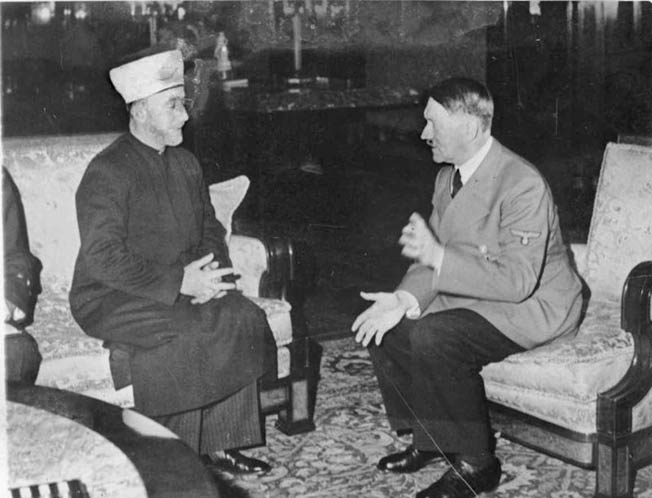
According to his biographer Zvi Elpeleg, in The Grand Mufti: Haj Amin Al-Hussaini, Founder of the Palestinian National Movement, “Germany was considered friendly since it was not an imperialistic country.” The Third Reich had no overseas colonies then.
On his way to Berlin, Haj Amin resided in Rome from October 11 to November 5, 1941, as a formally recognized representative of the new Arab National Party, and pressed for Axis recognition of a fascist Arab state that would include Iraq, Syria, Palestine, and Transjordan. During a summit conference with the Fascist Duce, Mussolini told Haj Amin, “If the Jews want a state, they should establish Tel Aviv in America…. They are our enemies … and there will be no place for them in Europe.”
Haj Amin also met with Italian Foreign Minister Count Galeazzo Ciano. He then spent November 6-28, 1941, in Berlin, holding a series of meetings with German Foreign Minister Joachim von Ribbentrop and his able deputy, State Secretary Baron Ernst von Weiszacker, and then Hitler himself. The latter told the Grand Mufti that there would be no Axis Pact commitment to the Arab world until after the German armies conquered the Soviet Caucasus, which never happened entirely.
Nevertheless, Haj Amin began pro-Axis radio propaganda broadcasts in May 1942 to the Arab world. Despite this, the Nazis then backed Rashid Ali instead, while Fascist Italy tilted toward Haj Amin to spite the Germans. Thus, under the Axis flag in the summer of 1942 at the very apex of Rommel’s desert victories against the Allies, Arab forces were raised to fight for both the Axis Pact and Islam.
The Mistake of the Italian Alliance
On February 17, 1945, holed up 50 feet below ground in his Berlin Reich Chancellery bunker, Hitler analyzed his mistakes as he saw them in his political testament. He wrote, “Our Italian ally has been a source of embarrassment to us everywhere. It was this alliance, for instance, which prevented us from pursuing a revolutionary policy in North Africa…. This territory was becoming an Italian preserve, and it was as such that the Duce laid claim to it.
“Had we been on our own, we could have emancipated the Muslim countries dominated by France, and that would have had enormous repercussions in the Near East, dominated by Britain, and in Egypt, but with our fortunes linked to those of the Italians, the pursuit of such a policy was not possible.
“All Islam vibrated at the news of our victories! The Egyptians, the Iraqis, and the whole of the Near East were all ready to rise in revolt. Just think what we could have done to help them, even to incite them, as would have been both our duty and in our own interest!
“But the presence of the Italians at our side paralyzed us; it created a feeling of malaise among our Islamic friends, who inevitably saw in us accomplices, willing or unwilling, of their oppressors…. We had a great chance of pursuing a splendid policy with regard to Islam, but we missed the bus, as we missed it on several other occasions, thanks to our loyalty to the Italian alliance!
“In this theater of operations, then, the Italians prevented us from playing our best card, the emancipation of the French subjects and the raising of the standard of revolt in the countries oppressed by the British.
“Such a policy would have aroused the enthusiasm of the whole of Islam. It is a characteristic of the Muslim world, from the shores of the Atlantic to those of the Pacific, that what affects one, for good or for evil, affects all….”
Thus, a total victory by Rommel in North Africa in 1942 instead of the defeats that he suffered at El Alamein and in Tunisia might well have preceded a massive Arab rising in favor of the Nazis despite Mussolini, who, in 1937 with Italian Colonial Governor Marshal Italo Balbo of Libya at his side, raised the symbolic “Sword of Islam” in vain hopes of securing the Arabs to his cause.
As it was, after the military demise of the Axis forces in Africa in May 1943, these Arab soldiers found themselves fighting as part of the German Waffen SS in the Muslim parts of the Balkans during 1943-1945.
Planning a Second Holocaust in the Middle East
When the British formed the Jewish Brigade, Haj Amin countered with a like Arab unit. During 1944, Palestinian paratroopers trained by the Germans in Holland were air-dropped into the Holy Land to spread revolt and chaos; a postwar second anti-Jewish Holocaust was planned for the Middle East in the interim.
According to author Elpeleg, Hitler blamed the Jews for the gas warfare in World War I that almost claimed his sight for good, the U.S. entry into the war in 1917, the 1918 overthrow of the Imperial German Second Reich, and the harsh 1919 Versailles peace treaty and its terms. Haj Amin concurred in these views.

In his postwar memoirs and other writings, the Grand Mufti insisted that he had not been involved in the first Holocaust, but he had opposed Jewish immigration from Nazi-occupied Europe to Palestine in his meetings with Hitler, SS Reichsführer Heinrich Himmler, and von Ribbentrop, thus indirectly helping to provide more victims for the destructive maw of the gas chambers.
A primary aim of the Greater German Reich was the negation of a Jewish national homeland in Palestine, and Haj Amin was quoted as asserting that he was both delighted and pleased by the Nazi Final Solution of the Jewish Question during the four years that he spent within Nazi Germany during 1941-1945.
With the end of the Axis war effort in North Africa, Haj Amin turned his attention to the scattered Muslim populations throughout the Balkans. Two Waffen SS divisions were created for them, Handschar and Kama.
Leader of the Arab League
With the loss of the war in May 1945, Haj Amin slipped illegally into neutral Switzerland. Returning to prostrate Germany, he was arrested by the French and imprisoned at Varenne, rightly fearing indictment by the Allies as a war criminal at Nuremberg. He was saved miraculously from this fate, however, when General Charles de Gaulle personally intervened on his behalf, possibly to spite his British ally, Winston Churchill.
Thus, the Grand Mufti escaped yet again and was received at anti-British Cairo by Egyptian King Farouk and later welcomed back to Palestine as the unchallenged leader of the newly formed Arab League. Meanwhile, the failure of the 1946 London talks over what to do about the Jews and Palestinians in the Holy Land brought the thorny question before the new United Nations in New York City for a vote.
The Arab League established its Liberation Army to resist the subsequent partition decision of November 29, 1947, and thus the stage was set for the creation of the new State of Israel, the first since the destruction of the Temple at Jerusalem by the Romans in ad 70, almost 1,000 years earlier.
The key factors were the 1917 British Balfour Declaration that the Jews should have a national home in Palestine, the global sympathy for the victims of the Nazi Holocaust of 1941-1945, the withdrawal of the British Army, and the Transjordanian Arab Legion invasion of May 15, 1948. The rout of this formation and the Egyptian Army by the Jewish Defense Forces (JDF) and internal Arab political disunity spelled victory for the Jews on October 15 in the first of a trio of wars that occurred during 1948-1973.
“A Devil Straight From Hell”
King Abdullah of Transjordan called his political foe Haj Amin “a devil straight from hell,” while an armistice was signed on February 24, 1949, on the Isle of Rhodes. The catastrophic defeat of Arab arms meant doom for the Grand Mufti’s political career then and there, and he spent the last two decades of his life writing autobiographical articles and memoirs.
Shunted aside after almost three decades as a leading political and martial figure in the Arab world, Haj Amin was forced to watch from the sidelines during the creation of the PLO in 1964 and the rise of his spiritual godson, PLO leader Yasser Arafat, in 1968. On July 4, 1974, Haj Amin died of a heart attack in the American hospital at Beirut, Lebanon. He was buried in the Cemetery of the Fallen of the Palestinian Revolution there, with Arafat as a chief mourner. Israel refused him burial in Jerusalem, and thus his mortal remains are still in Lebanon.
Today, Haj Amin is viewed in the Arab world as a symbol of the 1948 defeat and also in the bloody saga of the Holocaust as the man whose Nazi broadcasts shrieked, “Kill the Jews wherever you find them! This pleases God, history and religion.” sides in Towson, Maryland.
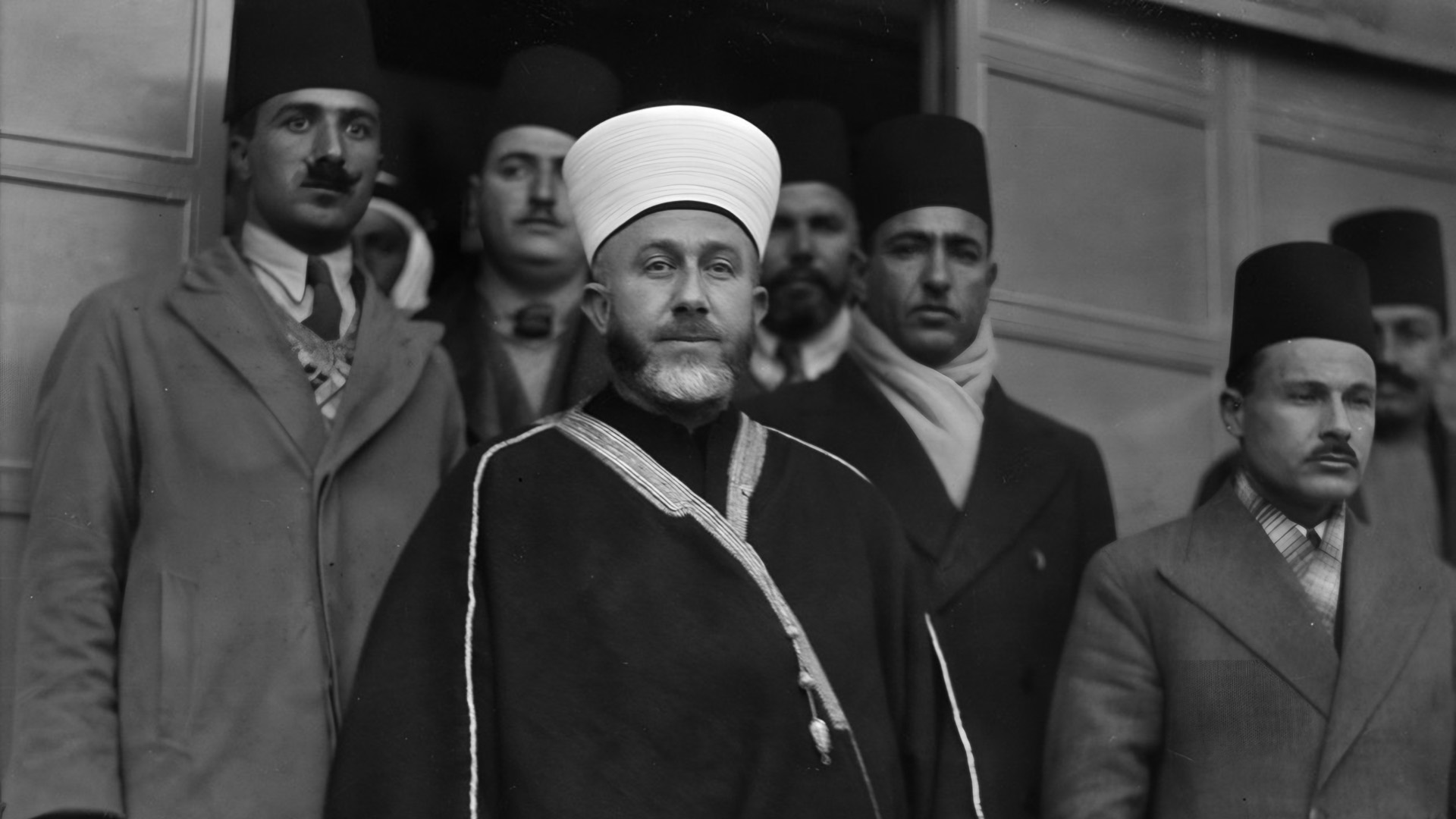

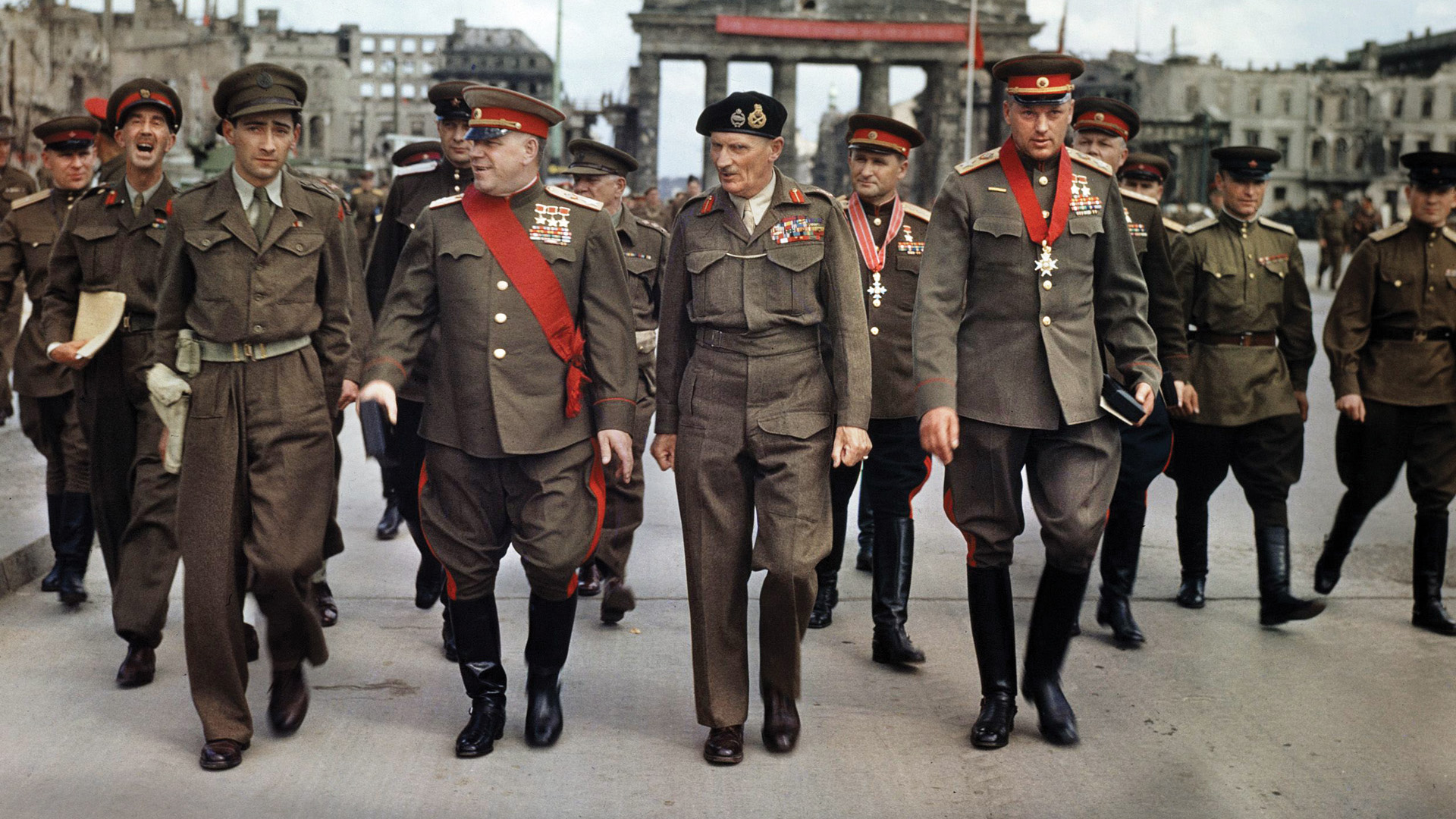
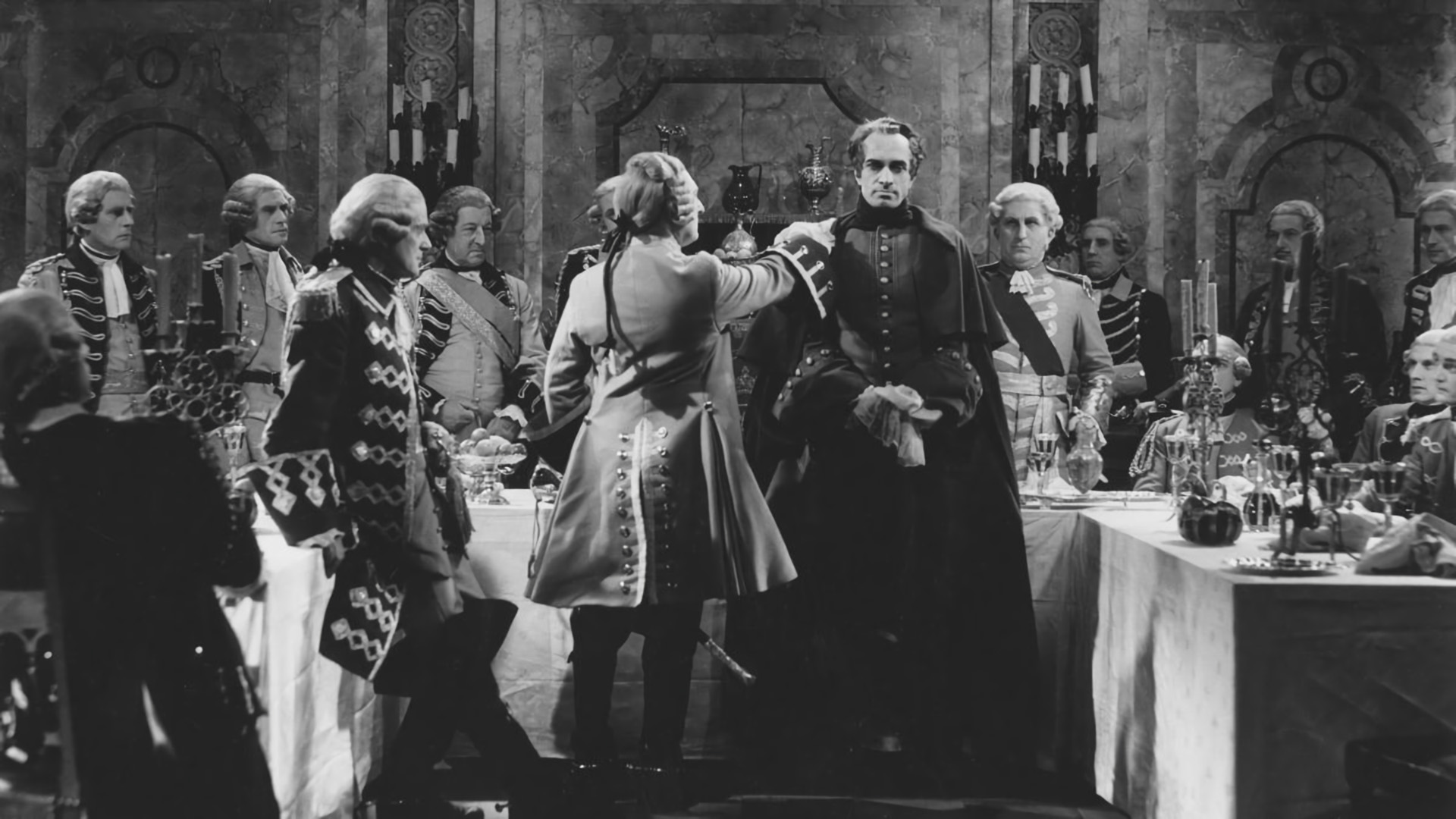

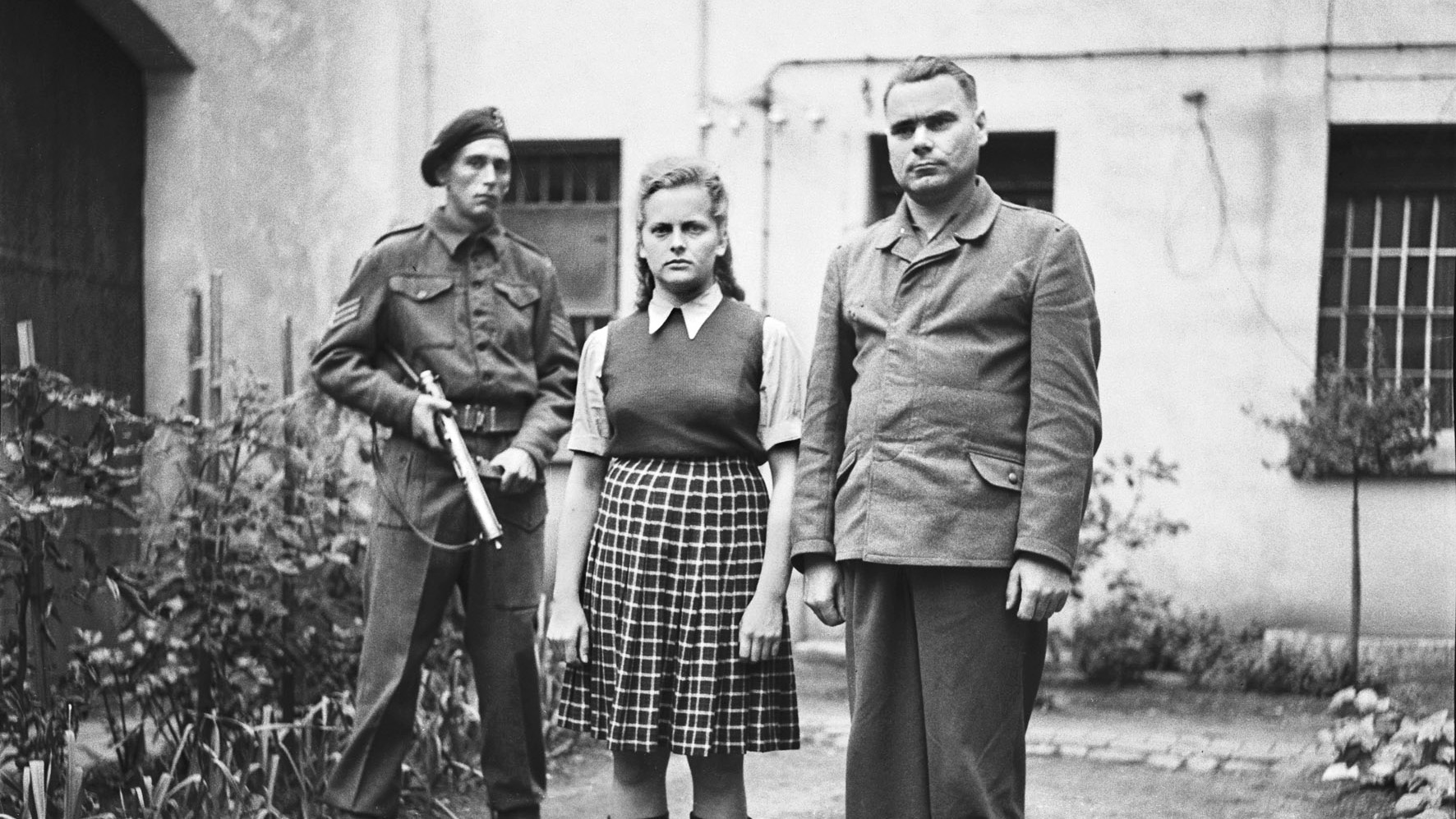


Join The Conversation
Comments
View All Comments